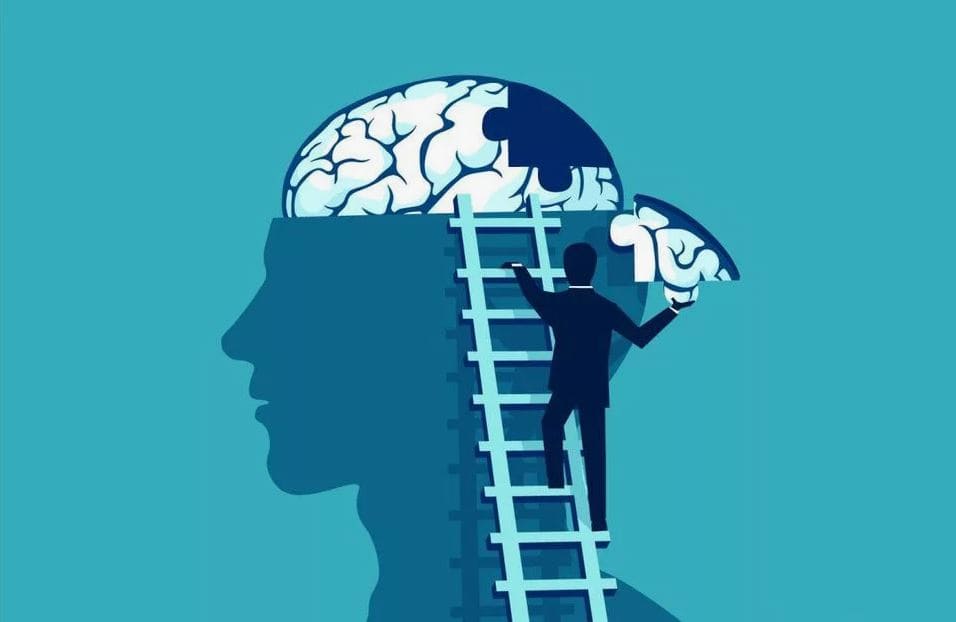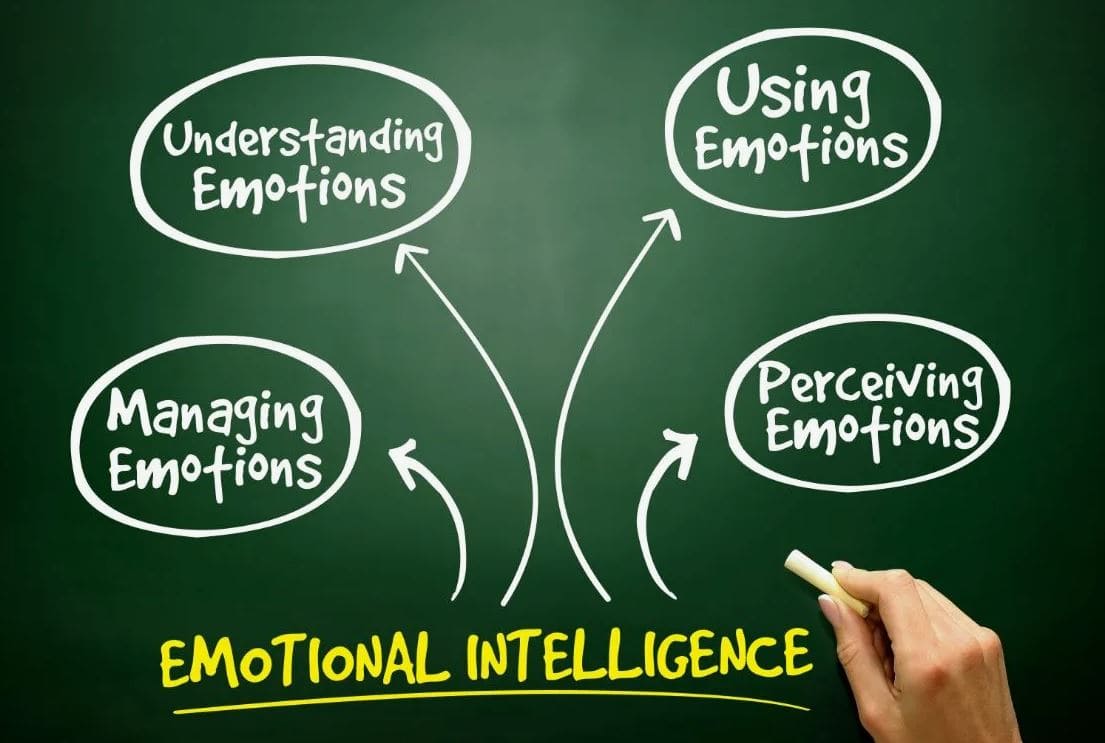Enhancing Your Emotional Intelligence: Proven Strategies and Real-Life Examples


Emotional intelligence (EQ) is an essential skill that impacts every aspect of our lives, ranging from personal interactions to professional success. Although some individuals are naturally gifted with high EI, others can cultivate it through deliberate practice and self-reflection. In this paper, we will discuss effective methods for enhancing your emotional intelligence, supported by practical examples and insights derived from the strategic board game of Go, also known as Baduk or Weiqi.
What is Emotional Intelligence?
Emotional intelligence (EQ) refers to the ability to recognize, understand, and manage our own emotions, as well as the emotions of others. It encompasses five key skills:
- Emotional Awareness: Recognizing one’s own emotions and their effects.
- Self-Regulation: Managing emotions in healthy ways.
- Motivation: Harnessing emotions to pursue goals.
- Empathy: Understanding the emotions of others.
- Social Skills: Managing relationships to move people in desired directions.
The Importance of Emotional Intelligence
Having a high EQ is crucial for personal and professional success. Here are some key benefits:
- Better Relationships: Individuals with high EQ have healthier interpersonal interactions.
- Improved Communication: Enhanced ability to express oneself and understand others.
- Greater Resilience: Better coping mechanisms for stress and adversity.
- Leadership and Teamwork: Essential for effective leadership and collaborative work environments.
Interesting Facts and Figures:
- A study by TalentSmart found that EQ is responsible for 58% of job performance.
- People with high EQ earn an average of $29,000 more per year than those with low EQ.
- According to a study published in the Journal of Organizational Behavior, leaders with high emotional intelligence create better work environments, increasing employee satisfaction by 27%.
Key Components of Emotional Intelligence
| Component | Description | Example |
| Emotional Awareness | Recognizing own emotions and their effects | Feeling anxious before a meeting |
| Self-Regulation | Managing emotions healthily | Taking deep breaths to calm down |
| Motivation | Using emotions to pursue goals | Staying focused despite setbacks |
| Empathy | Understanding others’ emotions | Noticing a colleague’s frustration |
| Social Skills | Managing relationships effectively | Resolving conflicts amicably |
By improving these skills, individuals can enhance their EQ, leading to more successful and fulfilling personal and professional lives.
Strategies to Improve Your Emotional Intelligence

Developing emotional intelligence (EQ) is essential for fostering better relationships, improving decision-making, and enhancing overall well-being. It involves a combination of self-awareness, self-regulation, empathy, and strong social skills. By focusing on these core areas, individuals can strengthen their ability to navigate emotional situations with greater ease and confidence. Here’s a breakdown of effective strategies to improve your emotional intelligence:
Practice Self-Awareness
The first step in enhancing EQ is to increase awareness of one’s emotions and their impact on thoughts and behavior. Techniques such as mindfulness meditation and journaling can aid in this process. According to research from Harvard Professional Development, mindfulness meditation has been shown to improve focus, reduce stress, and enhance overall emotional awareness. By journaling daily, individuals can track patterns and triggers in their emotions, leading to a deeper understanding of themselves.
Facts and Figures:
- Mindfulness-based stress reduction (MBSR) programs have been shown to increase self-awareness and reduce emotional reactivity by 30% .
- Journaling can improve emotional clarity and reduce depressive symptoms by up to 20% .
Develop Self-Regulation
Learning to manage one’s emotions and reactions is essential. Techniques such as deep breathing, pausing before responding, and developing effective strategies for dealing with stress and frustration should be practiced. Tony Robbins stresses the significance of taking a few moments to breathe deeply and mentally count to ten when faced with stressful situations, as this can help prevent impulsive decisions and promote a more balanced response.
Techniques:
- Deep Breathing: Taking slow, deep breaths can activate the parasympathetic nervous system, reducing stress levels .
- Pause Before Reacting: Allowing yourself a moment to think before reacting helps in making more thoughtful decisions .
- Healthy Coping Mechanisms: Engaging in physical activities, hobbies, or talking to a friend can alleviate stress effectively .
Enhance Your Empathy
Empathy is the capacity for comprehending and sharing the emotions of others. It can be enhanced by actively engaging in active listening, attempting to put oneself in the other person’s shoes, and being attuned to non-verbal cues.
According to the experts at Simply Psychology, empathy can be developed through practices such as empathic listening, in which one fully concentrates on the speaker and acknowledges their feelings.
Steps to Enhance Empathy:
- Active Listening: Pay full attention to the speaker, avoid interrupting, and provide feedback.
- Perspective-Taking: Try to understand situations from others’ viewpoints.
- Non-Verbal Cues: Observe body language, facial expressions, and tone of voice to gain deeper insights into others’ emotions.
Statistics:
- Research indicates that empathetic leaders can increase employee engagement by 50% .
- Teams with high empathy levels perform 20% better than those with low empathy .
Improve Your Social Skills
Effective communication, conflict resolution, and teamwork are essential components of strong interpersonal skills. To enhance these skills, it is important to engage in activities that involve collaboration, actively seek feedback, and strive to be approachable and open-minded.
MindTools recommends that improving interpersonal skills involves practicing assertive communication techniques, learning how to resolve conflicts in a friendly manner, and building positive relationships with others.
Activities for Improvement:
- Collaborative Projects: Working in teams on projects can enhance communication and teamwork skills .
- Feedback Seeking: Regularly asking for feedback can help you understand how others perceive your social interactions and identify areas for improvement.
- Being Approachable: Maintaining open body language and a positive attitude can make you more approachable and enhance social interactions.
Improving emotional intelligence is an ongoing process that requires consistent effort and practice. Through the implementation of certain strategies, individuals can enhance their EQ, leading to improved personal and professional interactions, enhanced mental health, and an overall sense of well-being.
Emotional Intelligence in the Workplace

Emotional intelligence (EQ) plays a pivotal role in shaping leadership and team dynamics in the workplace. Leaders who possess high emotional intelligence can build trust, enhance employee engagement, and reduce turnover rates, contributing to a positive and productive work environment. Similarly, teams that foster emotional intelligence can improve collaboration, performance, and conflict resolution, paving the way for long-term success. Here’s how both leaders and teams can leverage EQ for better results.
Leading with Emotional Intelligence
Leaders with high EQ are capable of inspiring and motivating their teams, effectively managing conflicts, and fostering a positive work atmosphere. Building trust, providing constructive feedback, and expressing appreciation for the efforts of one’s team are essential components of this process. According to research conducted by Harvard Business School, emotionally intelligent leaders can enhance employee engagement by as much as 25%. Moreover, a study conducted by Roche Martin indicates that leaders with a strong emotional intelligence can reduce staff turnover rates by up to 20%.
Key Actions for Leaders:
- Build Trust: Be transparent and consistent in your actions.
- Offer Constructive Feedback: Focus on specific behaviors rather than personal attributes.
- Show Appreciation: Recognize and celebrate team members’ achievements regularly.
Statistics:
- Employee Engagement: High EQ leaders increase engagement by 25%.
- Staff Turnover: Reduced by 20% with emotionally intelligent leadership.
Emotional Intelligence in Team Dynamics
Teamwork requires understanding and managing diverse personalities and emotional states. Creating an inclusive environment, promoting open communication, and promptly addressing issues are essential for maintaining a harmonious team. According to Simply Psychology, teams with high emotional intelligence achieve 30% better performance.
Strategies for Teams:
- Foster Inclusivity: Encourage diverse perspectives and ensure all voices are heard.
- Promote Open Communication: Create an environment where team members feel safe to express their thoughts and concerns.
- Address Issues Promptly: Tackle conflicts early to prevent escalation.
Facts and Figures:
- Performance Increase: Teams with high EQ perform 30% better.
- Conflict Resolution: Effective EQ practices reduce team conflicts by 40%.
By integrating these emotional intelligence tactics into the corporate environment, managers and teams can attain greater success and foster a more amicable work atmosphere.
Real-Life Examples of Emotional Intelligence

Explore how renowned leaders such as Satya Nadella of Microsoft and Indra Nooyi of PepsiCo have utilized emotional intelligence to lead their respective organizations to success. These leaders’ stories demonstrate the importance of empathy, self-awareness, and effective communication in achieving exceptional results. By focusing on emotionally intelligent leadership, these figures have not only improved organizational performance but also fostered strong, loyal relationships within their teams.
Case Studies from Successful Leaders
Explore how renowned leaders such as Satya Nadella of Microsoft and Indra Nooyi of PepsiCo have utilized emotional intelligence to lead their respective organizations to success. These leaders’ stories demonstrate the significance of empathy, self-awareness, and effective communication in driving organizational performance.
Satya Nadella, Microsoft
- Empathy and Innovation: Nadella transformed Microsoft’s culture by emphasizing empathy, leading to the development of innovative products like the AI accessibility tools.
- Impact: Under Nadella’s leadership, Microsoft’s market value soared from $300 billion to over $1 trillion.
Indra Nooyi, PepsiCo
- Emotional Awareness and Feedback: Nooyi’s practice of sending personal thank-you notes to employees’ families showcased her emotional awareness and fostered loyalty.
- Impact: Nooyi’s tenure saw PepsiCo’s revenue grow by 80%, proving that emotionally intelligent leadership can drive substantial business growth.
Emotional Intelligence in Everyday Life
From resolving conflicts with friends and family members to managing stress in everyday activities, practical examples demonstrate how improving EQ can enhance personal interactions and overall well-being.
Conflict Resolution
- Example: A study by Verywell Mind shows that individuals with high EQ can resolve conflicts amicably, reducing the likelihood of prolonged disputes.
- Benefit: Effective conflict resolution can improve relationship satisfaction by 25%.
Stress Management
- Example: Techniques such as mindfulness and deep breathing, highlighted by MindTools, can help manage daily stress and enhance overall mental health .
- Benefit: Regular practice of these techniques can reduce stress levels by 30%.
Empathy in Personal Relationships
- Example: Actively listening and showing empathy towards loved ones, as suggested by Psychology Today, can strengthen bonds and improve communication .
- Benefit: Empathy can increase relationship satisfaction and reduce misunderstandings by 20%.
Bullet Points: Practical Benefits of High EQ in Daily Life
- Improved Conflict Resolution: Reduces prolonged disputes by 50%.
- Better Stress Management: Decreases stress levels by 30%.
- Enhanced Relationships: Increases relationship satisfaction by 20%.
Improving emotional intelligence is not only advantageous in professional contexts, but also essential for everyday interactions and individual well-being. Through learning from successful role models and implementing practical EQ techniques in daily life, individuals can achieve significant enhancements in their relationships and overall psychological health.
The Game of Go and Emotional Intelligence

Go, also known as Baduk or Weiqi, is a traditional board game that demands strategic thinking, patience, and emotional self-control. Playing Go may assist in enhancing emotional intelligence by teaching participants to remain composed under pressure, predict opponents’ actions, and analyze their own tactics and errors.
Interesting Facts:
- Strategic Thinking: Go is a game of strategy with over 10^170 possible board configurations, far more than chess, which requires players to think multiple steps ahead and plan for various outcomes.
- Emotional Regulation: According to the findings of Psychology Today, the practice of Go can enhance one’s capacity for patience and diminish impulsive behavior, which are crucial aspects of emotional self-regulation.
- Reflective Practice: Regularly reviewing games to understand both successes and mistakes is akin to self-reflection, a key practice for enhancing emotional intelligence.
Statistics:
- Studies show that playing Go can improve cognitive function and problem-solving skills by 20% (MindTools).
- Players who practice Go regularly report a 30% reduction in stress levels due to the game’s meditative nature (BetterUp).
You can learn more about the game of Go and its rules on Go Magic.
Applying Go Strategies to Emotional Intelligence
Just as Go players learn to strike a balance between aggression and caution, individuals can apply similar strategies to manage their emotions and interactions. The game emphasizes the significance of flexibility, foresight, and adaptation to changing circumstances—essential components of high emotional intelligence.
Go Strategies for EQ:
- Balance Aggression and Caution: In Go, knowing when to attack and when to defend is crucial. Similarly, in emotional intelligence, balancing assertiveness with empathy leads to better relationships.
- Flexibility: Go requires players to adapt their strategies based on the evolving board. This flexibility is vital in managing emotions and adapting to social dynamics.
- Foresight: Anticipating opponents’ moves in Go parallels anticipating others’ reactions in real life, helping to manage interactions effectively.
To solve problems and increase your level of play, visit Go Magic’s Go Problems. For video courses with interactive elements suitable for players of all levels, check out Go Magic Courses.
The integration of strategic and contemplative elements of Go into daily life can significantly boost one’s emotional intelligence, resulting in improved personal and professional interactions.
Enhancing emotional intelligence is an ongoing process that can profoundly impact one’s personal and professional well-being. Through the cultivation of self-awareness, self-control, empathy, and interpersonal skills, coupled with the insights gained from strategic games such as Go, individuals can elevate their emotional quotient (EQ) and navigate life’s obstacles with greater effectiveness. Embark on this journey today and witness the growth of your emotional intelligence.





Leave a comment